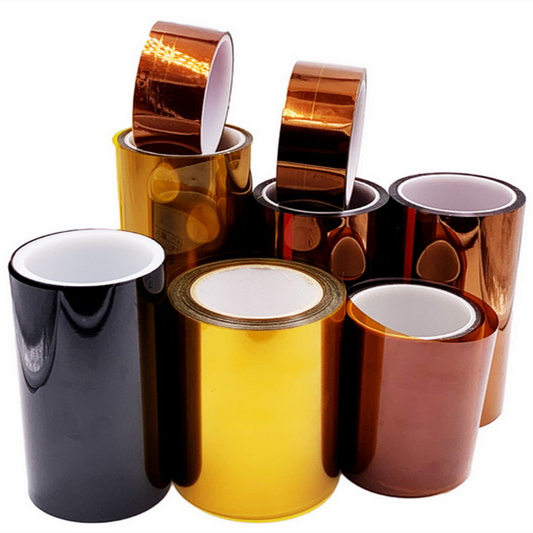
The insulation grade of polyimide film (PI film for short) varies due to its specific type, manufacturing process and use. Generally speaking, polyimide film is widely considered to be F to H grade insulation material due to its excellent high temperature resistance, voltage resistance and insulation performance. The following is a detailed analysis of the insulation grade of polyimide film:
Insulation grade overview
The insulation grade is a standard for measuring the ability of a material to withstand voltage and temperature in electrical applications. In electrical engineering, common insulation grades include A, E, B, F, H, etc., among which A is the lowest and H is the highest. Polyimide film is usually classified as F or H grade insulation material due to its excellent performance.
Insulation grade characteristics of polyimide film
F grade insulation:
The maximum allowable operating temperature is 155℃.Including materials or their combinations made of synthetic resin paint modified with silicone organic compounds, or alkyd, epoxy resin, etc. with heat resistance meeting F grade requirements as adhesives.
Polyimide film may meet Class F insulation standards in some applications, depending on its manufacturing process and formulation.
H-class insulation:
The maximum allowable operating temperature is above 180°C.Including materials made of silicone organic matter and inorganic materials such as mica, asbestos, and glass fiber using silicone organic paint as a binder.
Polyimide film is often classified as Class H insulation material due to its excellent high temperature resistance. This material is widely used in occasions requiring high temperature, high voltage and high insulation performance, such as aviation motors, crane motors, traction motors, etc.
Other properties of polyimide film
In addition to excellent insulation performance, polyimide film also has the following characteristics:
High temperature resistance: high temperature resistance of more than 400°C, long-term use temperature range of -200 to 300°C.
High insulation performance: maintain stable insulation performance over a wide temperature range.
Excellent mechanical properties: The tensile strength of unfilled plastics is above 100MPa, and the tensile strength of isophthalic polyimide films is higher.
Radiation resistance: The film has a high strength retention rate after irradiation.
Chemical stability: It shows good stability in a variety of chemical environments.
In summary, polyimide films are generally classified as F to H grade insulating materials due to their excellent high temperature resistance, voltage resistance and insulation properties. In specific applications, their insulation levels may vary depending on the manufacturing process, formula and purpose.
Therefore, when selecting polyimide films, it is necessary to determine their insulation level and other performance indicators based on specific application scenarios and needs.

